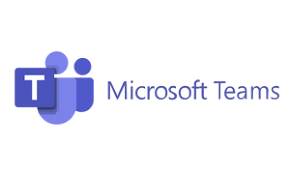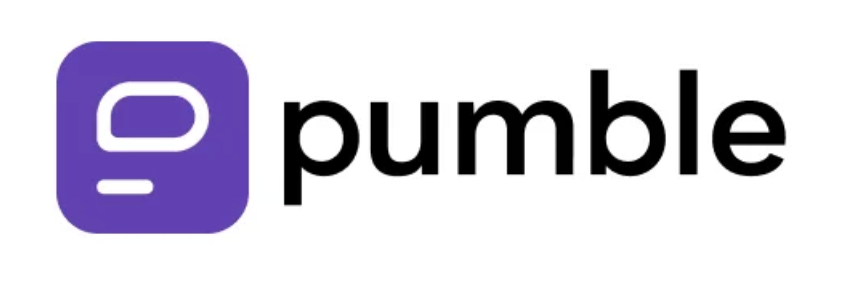
Back to hub
Blog
Software
7 Best Video Conferencing Softwares for Teams in 2025

Mathieu Co-founder
Published on May 26, 2025Updated on Aug 3, 2025
Picture this: It's 2025, and you're running a hybrid team that spans from San Francisco to Singapore. Your morning starts with a perfectly crisp video call where everyone feels like they're in the same room, despite being thousands of miles apart. The AI assistant automatically takes notes, translates conversations in real-time, and even detects when someone needs a break. This isn't science fiction—it's the reality of modern video conferencing.With 36.2 million Americans projected to be working remotely by 2025, choosing the right video conferencing platform has become more critical than ever. Whether you're building client relationships, conducting team meetings, or scaling your B2B outreach efforts, the software you choose can make or break your virtual communication strategy.
What Makes Video Conferencing Software "Best in Class" for 2025?
Before we dive into the specific platforms, let's establish what separates the wheat from the chaff in today's competitive landscape. The best video conferencing software for teams in 2025 isn't just about clear video and audio anymore—it's about creating seamless collaborative experiences that rival in-person meetings.
Essential Features Every Modern Video Conferencing Platform Needs
Crystal-Clear Audio and Video Quality Without proper video quality, the other features don't even matter. Look for platforms offering HD 720p as a minimum standard, with 1080p capabilities for professional presentations.
AI-Powered Enhancements When forecasting the five biggest expected video conferencing trends for 2025, each is underpinned by AI. Features like automatic noise cancellation, background blur, and real-time transcription are becoming table stakes.
Robust Security Features As video conferencing becomes more ingrained in business operations, the need for enhanced security and privacy features will grow, with platforms adopting more advanced encryption technologies, multi-factor authentication, and AI-driven security measures.
Seamless Integration Capabilities Your video conferencing tool should play nicely with your existing tech stack. Whether you're using CRM software, project management tools, or outreach platforms like Emelia.io for your B2B prospecting efforts, integration capabilities are non-negotiable.Table: Essential Video Conferencing Features Comparison
Feature | Importance Level | Why It Matters |
|---|---|---|
HD Video Quality | ⭐⭐⭐⭐⭐ | Foundation for professional communication |
AI Transcription | ⭐⭐⭐⭐ | Saves time and improves accessibility |
Advanced Security | ⭐⭐⭐⭐⭐ | Protects sensitive business information |
Mobile Optimization | ⭐⭐⭐⭐ | Enables on-the-go collaboration |
Integration Options | ⭐⭐⭐⭐ | Streamlines workflow efficiency |
The Top 7 Video Conferencing Platforms for Teams in 2025
1. Zoom Workplace - The Proven Powerhouse with AI Superpowers

Zoom — with its 300 million daily active users — is at the top of the video conferencing tool popularity charts. But what makes Zoom special in 2025 isn't just its massive user base—it's how they've evolved beyond simple video calls.What Sets Zoom Apart:
AI Companion: Provides real-time meeting summaries and action items
Superior Video Quality: Maintains performance across different bandwidth environments
Extensive Integration Library: Works seamlessly with thousands of business applications
Advanced Webinar Capabilities: Perfect for client presentations and team training
Best For: Organizations that prioritize reliability and need robust webinar functionality for client-facing meetings or B2B outreach campaigns.Pricing: Basic (Free), Pro ($139.90/year per user), Business ($189.90/year per user)
2. Microsoft Teams - The All-in-One Collaboration Champion

Integration with Microsoft 365 makes the platform the market leader in video conferencing and digital workspace integration. Teams isn't just a video conferencing tool—it's a complete digital workspace that brings together chat, meetings, files, and apps.Key Advantages:
Deep Microsoft Integration: Seamless workflow with Office 365 apps
Enterprise-Grade Security: Teams adheres to more regulatory standards and offers advanced security features than Zoom and Meet
AI-Powered Meeting Notes: Automatically generates summaries and action items
Breakout Rooms & Collaboration Tools: Perfect for team workshops and brainstorming
Best For: Companies already using Microsoft 365 or those needing enterprise-level security for sensitive business communications.
Pricing: Free (limited), Essentials ($4/month per user), Business Basic ($6/month per user)
3. Google Meet - The User-Friendly Growth Machine

With a global market share jumping from 21.1% in 2020 to 31.4% in 2022, Google Meet takes the crown for the highest annual growth rate. What's driving this explosive growth? Simplicity and reliability.Why Teams Love Google Meet:
Effortless Integration: Works seamlessly with Google Workspace
No Time Limits: Their powerful free plan doesn't cut off your calls after 40 minutes
Mobile-First Design: Exceptional performance on smartphones and tablets
Clean Interface: Features a clean and minimalistic interface, which is less cluttered than Teams and about as straightforward as Zoom
Best For: Small to medium teams that value simplicity and Google ecosystem integration, especially those using Gmail and Google Calendar daily.
Pricing: Free (up to 100 participants), Business Starter ($6/month per user), Business Standard ($12/month per user)
4. Cisco Webex Meetings - The Enterprise Security Fortress

Cisco's Webex Meetings has maintained a reputation for robust security, offering end-to-end encryption for video conversations and advanced features such as real-time AI transcription.Enterprise-Grade Features:
Unmatched Security: Military-grade encryption and compliance certifications
AI-Powered Insights: Real-time transcription and meeting analytics
Scalability: Supports massive meetings and webinars
Global Reliability: Consistent performance across international connections
Best For: Large enterprises with strict security requirements and global teams needing reliable international connectivity.
Pricing: Free (40 minutes), Starter ($14.50/month), Business ($25/month), Enterprise (Custom)
5. GoToMeeting - The Reliable Workhorse

One of the features that sets GoToMeetings apart is its mobile friendliness - you can set up and start a conference from your smartphone, making it incredibly practical for modern hybrid teams.
Standout Features:
Mobile-First Approach: Exceptional smartphone and tablet experience
Easy Setup: Focuses on ease of use and affordability, featuring screen sharing, cloud storage for recordings, and straightforward scheduling tools
Reliable Performance: Consistent quality across different network conditions
Affordable Pricing: Great value for small to medium businesses
Best For: Teams that need reliable, no-nonsense video conferencing without breaking the bank.
Pricing: Professional ($14/month per user), Business ($19/month per user)
6. RingCentral Video - The Communication Hub

It's one of the most reliable video conferencing tools with great video quality and overall user experience. It's easy to set up, manage, and participate in webinars.
Key Benefits:
Unified Communications: Combines video, voice, and messaging
High-Quality Video: Superior audio and video performance
Scalable Webinars: Supports up to 10,000 attendees
Business Phone Integration: Seamless transition between calls and video
Best For: Organizations looking for a unified communication platform that goes beyond just video conferencing.
7. Pumble - The Rising Star for Team Collaboration

Pumble is an all-in-one video conferencing software that streamlines team communication and helps businesses achieve seamless collaboration, becoming one of the most popular video conferencing tools on the market for one simple reason — it's easy to use.
Why Teams Are Switching:
Intuitive Interface: Extremely user-friendly design
All-in-One Solution: Video, chat, and file sharing in one platform
Affordable Pricing: Great value for growing teams
Quick Adoption: Minimal learning curve for new users
Best For: Growing teams that want an affordable, easy-to-use alternative to the big players.Infographic suggestion: Comparison chart showing key features, pricing, and best use cases for each platform
Revolutionary AI Features Transforming Video Conferencing in 2025
The real game-changer in 2025 isn't just better cameras or clearer audio—it's artificial intelligence reshaping how we collaborate virtually. Video conferencing is fundamentally being transformed by AI, with the five biggest expected video conferencing trends for 2025 each underpinned by AI.
Real-Time Meeting Intelligence
Automated Transcription and Translation AI-powered tools are revolutionizing video conferencing by offering real-time transcription and translation, enhancing accessibility and comprehension for participants from diverse linguistic backgrounds. Imagine conducting a client meeting where language barriers simply don't exist—that's the reality of 2025.
Smart Meeting Summaries AI-powered tools now generate automated meeting summaries and action items, with generative AI and natural language modeling making these summaries more precise and actionable. No more frantic note-taking during important client calls!
Enhanced User Experience Through AI
Gesture Recognition and Interaction AI can now detect hand gestures and facial expressions, allowing you to control presentations or signal actions without interrupting the flow of the meeting, such as raising your hand virtually or using simple gestures to navigate slides.
Behavioral Analytics During a meeting, AI can observe participants' behavior, stress levels, posture and vocal tones, offering real-time feedback to improve engagement and encourage breaks when stress levels rise. It's like having a personal meeting coach!Think of it this way: if your current video conferencing setup is like driving a regular car, these AI-powered platforms are like switching to a Tesla with autopilot. The destination is the same, but the journey becomes exponentially smoother and more intelligent.
Security and Privacy: The Non-Negotiables for Business Communication
In an era where data breaches make headlines daily, choosing a video conferencing platform with robust security isn't optional—it's essential. As companies begin to rely on video conferencing to conduct business, they need unmatched security and privacy capabilities, with most top-rated platforms now offering full end-to-end encryption, multi-factor authentication, and audit reports.
What to Look For:
End-to-End Encryption Your conversations should be locked down tighter than Fort Knox. Look for platforms offering 256-bit encryption as a minimum standard.Compliance Certifications If you're in healthcare, finance, or any regulated industry, ensure your platform meets HIPAA, SOC 2, or GDPR requirements.Access Controls Features like waiting rooms, meeting locks, and participant permissions help you maintain control over who can access your meetings.
Audit Trails The ability to track who joined when, what was shared, and how long they stayed is crucial for compliance and security auditing.Remember, when you're conducting sensitive business discussions—whether it's strategic planning, client negotiations, or reviewing confidential data from your Emelia.io outreach campaigns—security isn't just a feature, it's a business imperative.
The Future of Video Conferencing: What's Coming Next

Virtual and Augmented Reality Integration
While still in its early stages, VR and AR will likely become more accessible and user-friendly by 2025, offering new ways for businesses to conduct meetings, training sessions, and presentations. Imagine walking into a virtual conference room where team members from around the world appear as realistic avatars—that future is closer than you think.
5G and Connectivity Improvements
With the rollout of 5G technology, video conferencing will benefit from faster internet speeds and lower latency, meaning smoother, higher-quality video calls with fewer interruptions. This is particularly exciting for mobile-first teams and field workers.
Advanced Analytics and Insights
Future platforms will provide deeper meeting analytics, helping teams understand communication patterns, engagement levels, and collaboration effectiveness. Think of it as "Google Analytics for your meetings."
How to Choose the Right Video Conferencing Platform for Your Team
Selecting the perfect video conferencing solution is like choosing the right tool for a specific job—you need to consider your unique requirements, constraints, and goals.
Assessment Framework: The 5-Point Evaluation
1. Team Size and Structure
Small teams (2-20 people): Google Meet or Pumble
Medium teams (21-100 people): Zoom or Microsoft Teams
Large enterprises (100+ people): Cisco Webex or Microsoft Teams
2. Existing Technology Stack
Google Workspace users: Google Meet
Microsoft 365 users: Microsoft Teams
Mixed or agnostic environment: Zoom or RingCentral
3. Budget Considerations
Tight budget: Google Meet or Pumble
Moderate budget: Zoom Pro or Teams Essentials
Enterprise budget: Cisco Webex or Teams Premium
4. Security Requirements
Standard business: Any major platform
High security needs: Cisco Webex or Microsoft Teams
Regulated industries: Microsoft Teams or Cisco Webex
5. Primary Use Cases
Internal team meetings: Google Meet or Pumble
Client presentations: Zoom or GoToMeeting
Large webinars: Zoom or RingCentral
All-in-one collaboration: Microsoft Teams
The Hidden Costs Nobody Talks About
When evaluating video conferencing platforms, most teams focus on the monthly subscription cost. But like an iceberg, the real expenses often lurk beneath the surface:
Training and Adoption Costs Once you have chosen a video conferencing software product, be sure to train your employees on how to use it to ensure that everyone can participate in meetings and get the most out of the software.
Integration Expenses Connecting your new platform with existing tools—whether it's your CRM, project management software, or outreach platforms like Emelia.io—might require additional development or third-party connectors.
Hardware Upgrades Beyond the software, you should consider the hardware you need. If you're looking for crisp sound or video quality, you need the best microphone and high-end webcam you can get.
Video Conferencing Best Practices for Maximum Impact
Pre-Meeting Preparation
Test Your Setup: Nothing kills credibility faster than technical difficulties during an important client call.Optimize Your Environment: Good lighting and a professional background matter more than you think—they're visual indicators of your attention to detail.
Prepare an Agenda: Meeting fatigue has become prevalent among professionals, with the endless cycle of back-to-back virtual meetings leading to decreased productivity, burnout, and disengagement. Combat this with focused, purposeful meetings.
During the Meeting
Engage Actively: Use features like polls, breakout rooms, and screen annotation to keep participants involved.
Mind Your Mute: AI can now automatically detect and reduce noise, allowing everybody an equal opportunity to speak during the conference, without the embarrassing hiccups of speaking while still on mute.
Record Strategically: Always inform participants and consider privacy implications, especially for client meetings.
Post-Meeting Follow-Up
Share AI-Generated Summaries: Most modern platforms can automatically create meeting notes and action items
Track Action Items: Use integrated task management features or export to your project management tools
Analyze and Improve: Review meeting analytics to identify patterns and optimization opportunities.
Integration with Your Business Ecosystem
In today's interconnected business environment, your video conferencing platform shouldn't exist in isolation—it should seamlessly integrate with your entire digital toolkit.
CRM and Sales Tools Integration
When you're running B2B outreach campaigns through platforms like Emelia.io, the ability to quickly jump from an email sequence to a video call can be the difference between a missed opportunity and a closed deal. Look for platforms that offer:
One-click meeting scheduling from CRM records
Automatic call logging and note-taking
Integration with sales pipelines for seamless follow-up
Project Management Synchronization
A seamless workflow comes from integrations with Google Calendar, Slack, and other project management tools. Your video platform should work harmoniously with tools like:
Asana, Monday.com, or Trello for task management
Slack or Microsoft Teams for ongoing communication
Google Drive or OneDrive for file sharing and collaboration
Mobile Optimization: Meeting Anywhere, Anytime

A survey conducted by Conference Board found that 90% of employers say they will keep hybrid-working policies in place, meaning employees can mostly choose the number of days they come into a physical office. This flexibility demands robust mobile video conferencing capabilities.
What Makes Mobile Video Conferencing Excellent:
Intuitive Mobile Interface: Buttons and features should be easily accessible on smaller screens
Efficient Battery Usage: Long meetings shouldn't kill your phone battery
Quality Bandwidth Management: Automatic adjustment for cellular vs. WiFi connections
Cross-Platform Consistency: Features available on desktop should work on mobile tooThink about it—your next big client call might happen from an airport lounge, a hotel room, or even your car (safely parked, of course!). Your platform choice should support your mobile lifestyle, not limit it.
The ROI of Great Video Conferencing
Investing in quality video conferencing isn't just about having clearer calls—it's about measurable business impact. Businesses making video-first interactions part of their corporate culture report a 22% improvement in customer service.
Quantifiable Benefits:
Reduced Travel Costs: The average business trip costs $1,431. Replace just one trip per employee per quarter, and the savings add up quickly.
Increased Meeting Frequency: Better tools lead to more frequent check-ins, improving team alignment and project velocity.
Faster Decision Making: By choosing the right video conferencing software and using it effectively, businesses can boost productivity, improve communication and collaboration, and save time and money.
Enhanced Client Relationships: Face-to-face interactions, even virtual ones, build stronger relationships than phone calls or emails alone.
Calculating Your Video Conferencing ROI
Here's a simple framework:
Monthly Costs: Platform subscription + training time + setup costs
Monthly Benefits: Travel savings + productivity gains + faster deal cycles ROI = (Benefits - Costs) / Costs × 100For most businesses, a quality video conferencing platform pays for itself within the first quarter through travel savings alone.
Common Pitfalls and How to Avoid Them
The "Feature Overload" Trap
Just because a platform has 47 different features doesn't mean it's the right choice. Focus on the features you'll actually use regularly. A platform that does five things exceptionally well is better than one that does twenty things poorly.
The "Cheapest Option" Mistake
The free plan might cover basic video conferences, but paid tiers typically offer advanced features like extended meeting time, AI analytics, or a higher participant capacity. Consider the hidden costs of limitations—lost productivity, frustrated clients, and missed opportunities often cost more than a premium subscription.
The "One-Size-Fits-All" Assumption
Different teams within your organization might need different solutions. Your sales team conducting client demos has different needs than your development team doing daily standups. Consider a hybrid approach where different departments use different tools that integrate well together.
Ignoring Change Management
The learning curve is higher with Teams, especially for those not already familiar with Microsoft's software. Understanding how to navigate between meetings, channels, and direct messages can require more initial training for user adoption. Plan for adequate training and change management—the best tool in the world won't help if your team doesn't know how to use it effectively.
Future-Proofing Your Video Conferencing Strategy
Technology moves fast, but switching platforms is expensive and disruptive. Here's how to choose a solution that will serve you well into the future:
Look for Platform Evolution
Choose vendors with a strong track record of innovation and regular updates. Platforms that embrace emerging technologies like AI, VR, and advanced analytics are more likely to stay relevant.
Consider Vendor Stability
The video conferencing market has been experiencing significant growth at a CAGR of 11.8%, with revenue steadily increasing from $7.0 billion in 2022 to projected $10.0 billion in 2025. Choose established vendors with strong financial backing and long-term viability.
Plan for Scalability
Your needs will change as your business grows. Choose platforms that can scale with you—from startup to enterprise—without requiring a complete platform migration.
API and Developer Support
Platforms with robust APIs and developer ecosystems are more likely to integrate with future tools and technologies your business might adopt.Image: A futuristic meeting room with AI assistants, VR participants, and real-time collaboration tools
Frequently Asked Questions

What's the best free video conferencing software for small teams?
Google Meet offers the most generous free plan with no time limits for calls, making it ideal for small teams. Anyone with a Google account can use Google Meet as a free video conferencing app, creating and sharing meeting IDs with up to 100 attendees for up to 60 minutes at no cost.
How important is AI in video conferencing for 2025?
AI is becoming essential, not optional. A recent study of Zoom users found that 73% predicted AI would be beneficial for video conferencing applications. Features like automated transcription, noise cancellation, and meeting summaries are becoming standard expectations.
Which platform offers the best security for enterprise use?
Cisco Webex and Microsoft Teams lead in enterprise security. Because of its secure environment and strong compliance, many large organizations choose Webex as their primary collaboration platform. Teams also offers extensive compliance certifications and advanced security features.
Can video conferencing replace in-person meetings entirely?
While video conferencing has become incredibly sophisticated, it works best as part of a hybrid approach. Through video conferencing software, a virtual experience mirrors an in-person meeting, bridging geographical gaps within an organization, but some activities still benefit from physical presence.
How do I calculate the ROI of upgrading my video conferencing platform?
Focus on measurable benefits: travel cost savings, productivity improvements, and faster decision-making cycles. Video conferencing helps reduce travel costs and improves work-life balance for employees. Most businesses see positive ROI within 3-6 months.
What bandwidth do I need for high-quality video conferencing?
For HD video conferencing, plan for at least 2-3 Mbps upload and download speeds per participant. With 5G becoming more widespread, we can anticipate a further reduction in lag and connection issues, making video calls more reliable.
How do video conferencing platforms handle different time zones?
Most modern platforms automatically detect and display time zones for all participants. Look for features like automated scheduling across time zones and calendar integration that shows local times for all attendees.
What's the learning curve for switching video conferencing platforms?
It varies by platform. The learning curve for Zoom is relatively low, with basic functionalities like starting or joining a meeting, screen sharing, and using the chat function quickly learned by users of all tech skill levels. Plan for 1-2 weeks of adjustment period for most teams.
How can video conferencing integrate with my B2B outreach strategy?
Quality video conferencing becomes crucial for converting email outreach into meaningful conversations. When using platforms like Emelia.io for cold email campaigns, having reliable video conferencing ready for warm leads can significantly improve conversion rates. Look for platforms that integrate with your CRM and scheduling tools for seamless lead progression.
What's the biggest mistake companies make when choosing video conferencing software?
Focusing solely on price rather than total value. Consider not just subscription costs but also training time, integration expenses, and the cost of limitations. A slightly more expensive platform that increases productivity and client satisfaction often delivers much better ROI than the cheapest option.
Ready to revolutionize your team's virtual collaboration? The video conferencing landscape in 2025 offers unprecedented opportunities to connect, collaborate, and grow your business. Whether you're conducting internal team meetings, presenting to clients, or scaling your B2B outreach efforts with tools like Emelia.io, the right video conferencing platform becomes the backbone of your remote success.The future of work is hybrid, global, and AI-enhanced. Choose a platform that doesn't just meet today's needs but anticipates tomorrow's possibilities.

Clear, transparent prices without hidden fees
No commitment, prices to help you increase your prospecting.
Credits(optional)
You don't need credits if you just want to send emails or do actions on LinkedIn
May use it for :
Find Emails
AI Action
Phone Finder
Verify Emails
€19per month
1,000
5,000
10,000
50,000
100,000
1,000 Emails found
1,000 AI Actions
20 Number
4,000 Verify
€19per month
Discover other articles that might interest you !
See all articlesBlog
Published on Oct 24, 2025
5 contract management tools that will help your legal team keep their cool in 2025
 Niels Co-founder
Niels Co-founderRead more
Tips and training
Published on Dec 5, 2022
Few things to avoid in your campaigns
 Niels Co-founder
Niels Co-founderRead more
LinkedIn
Published on Sep 2, 2025
LinkedIn and Beyond: Discover 6 Alternatives to Dripify
 Mathieu Co-founder
Mathieu Co-founderRead more
Software
Published on Nov 5, 2025
4 Translation Management Systems That Actually Make Global Expansion Easy (Not Overwhelming)
 Niels Co-founder
Niels Co-founderRead more
Sales
Published on Jul 14, 2025
Gross Sales vs Net Sales: the Key Differences You Need to Know
 Niels Co-founder
Niels Co-founderRead more
Software
Published on May 24, 2024
5 SalesQL Alternatives : 2025 B2B Prospecting Hacks
 Marie Head Of Sales
Marie Head Of SalesRead more
Made with ❤ for Growth Marketers by Growth Marketers
Copyright © 2026 Emelia All Rights Reserved
